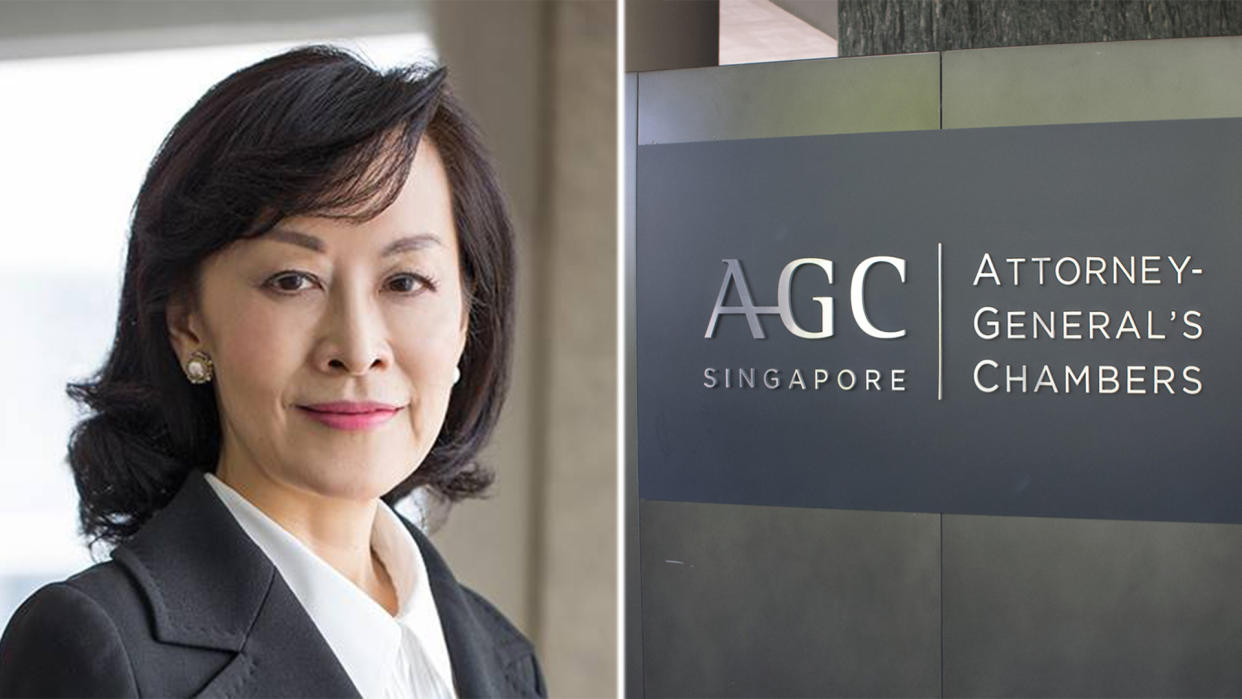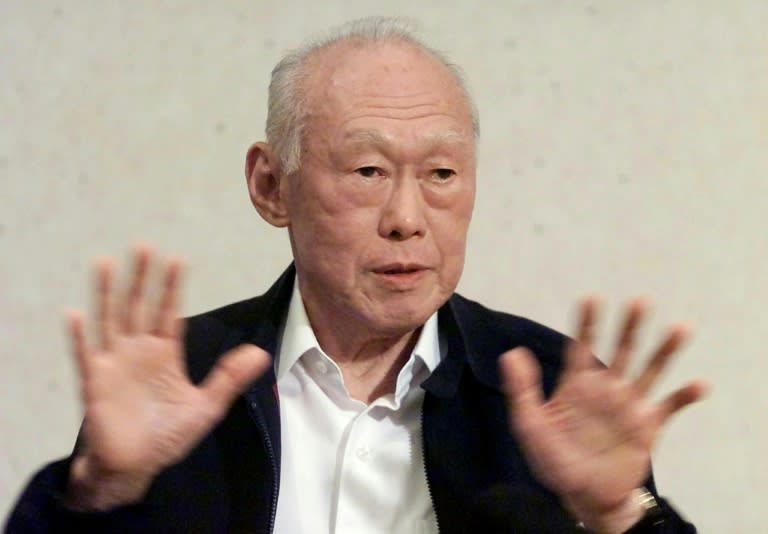Lee Kuan Yew's will: Disciplinary Tribunal 'cherry-picked' evidence in censuring Suet Fern, say lawyers

SINGAPORE — A Disciplinary Tribunal that censured Lee Suet Fern for grossly improper professional conduct in her handling of the late Lee Kuan Yew’s final will has “cherry-picked” evidence in arriving at its conclusions, said her lawyers at an appeal hearing on Thursday(13 August).
They added that Suet Fern, who is the wife of Lee Hsien Yang, merely played an “administrative role” in facilitating her father-in-law’s wishes. The 61-year-old is also sister-in-law to Prime Minister Lee Hsien Loong.
Her appeal against the DT’s findings was heard by the Court of Three Judges, the highest disciplinary body that deals with lawyers' misconduct. They comprise Chief Justice Sundaresh Menon, Judge of Appeal Judith Prakash and Justice Woo Bih Li. The DT unveiled its findings in February this year.
It is the latest twist in the long-running Lee saga, which erupted in June 2017 when Hsien Yang and his sister Wei Ling went public with their dispute over the fate of the old family home at 38 Oxley Road, accusing their older brother PM Lee of abusing the organs of state for his own benefit.
Background to the case
Last January, the Attorney-General’s Chambers (AGC) referred Suet Fern to the Law Society for her alleged role in preparing the will of Singapore’s first PM. The AGC said that this had placed her in a position of conflict and was a breach of the rules governing the conduct of lawyers because her husband was a beneficiary of the will, which was signed by the late Lee on 17 December 2013.
Two charges were laid against her by the tribunal. First, as her father-in-law's retainer, she had failed to advance his interest, unaffected by her own interest and/or that of her husband. This was because she prepared and arranged for the execution of the will, which gave Hsien Yang a third of the estate.
Secondly, as the retainer, Suet Fern breached rules by acting on the one-third share and failing to counsel the senior Lee to be independently advised on the "significant gift".
The couple have consistently denied that Suet Fern acted as the late Lee’s lawyer, but was merely helping as a family member and daughter-in-law.
But the two-man tribunal appointed by CJ Menon, comprising Senior Counsel Sarjit Singh Gill and lawyer Leon Yee Kee Shian, found all charges against Suet Fern “proven beyond reasonable doubt” in its 206-page report.
It called Suet Fern a “deceitful witness who tailored her evidence to portray herself as an innocent victim who had been maligned”. The tribunal added that the conduct of Hsien Yang, who testified as a witness, was “equally deceitful”.
"Mr Lee (Kuan Yew), who was very frail and in poor health, was misled by the very people whom he trusted: his son Lee Hsien Yang and daughter-in-law,” said the tribunal’s report on the case.
Final will executed with ‘extreme haste’

The Law Society was represented by senior counsel Tan Chee Meng, as well as Koh Swee Yen and Queenie Lim.
On Thursday, Koh argued that as the late Lee had always had a lawyer for his six wills – his niece Kwa Kim Li – it was a “reasonable inference” that he would have wanted a lawyer for his final will. And in a 4 June 2015 email to the three Lee siblings, Kwa explained why their father had done six wills over 15 months.
“I prepared at least 15 drafts for his review over that period, to take into account the many changes,” said Kwa, noting that the discussions revolved around where Wei Ling would stay, the division of the estate, and “how to give the children least headaches (over Oxley) when he is gone”.
Ultimately, Kwa was excluded by Suet Fern and Hsien Yang for the final will, which was executed with “extreme haste”, charged Koh.
When Judge Prakash asked if Suet Fern had “forced herself” into the position of being the lawyer, Koh concurred. But the Judge expressed scepticism on this point, while CJ Menon also noted that the legitimacy of the will was not in dispute.
Judge Prakash said, “Here is a person who is still in command of his faculties and has been in correspondence with his lawyer, now he is presented with this will. Am I supposed to believe that he has forgotten about this correspondence?”
Nevertheless, Koh maintained that Suet Fern deserved “severe sanctions” because of the various circumstances in which events took place.
Tribunal ‘cherry-picked’ evidence
Suet Fern was represented by senior counsels Kenneth Tan and Walter Woon, as well as Soh Wei Chi.
In their submissions to the court, the lawyers argued that the DT’s verdict was “patently unsafe and wrong”. It maintained that the Law Society failed to prove its case beyond a reasonable doubt, or that she deserved sanction for any misconduct.
Firstly, they claimed that the DT “cherry-picked” the evidence. For example, it described the late Lee as a 90-year-old man in poor health in its “slanted” characterisation of the context in which the will was signed. However, the DT did not account for the fact that the late Lee was still “very lucid”, even if he was old, and remained a Member of Parliament until his passing on March 2015.
Secondly, it “totally ignored” important evidence favourable to Suet Fern. For example, the DT did not take into account that any dealings between the late Lee and Suet Fern were as between legally trained family members – far removed from any commercial setting.
“Between family members, there is trust, some expectations, but before you are a lawyer, you are a family member. It cannot be that because a lawyer is also a family member, the lawyer should refrain from assisting the family member in any legal matters,” argued Tan.
Woon claimed that it would not have been tenable for Suet Fern to advise her father-in-law, a man used to getting his way, to seek independent legal advice. “This would have implied he did not know what he wanted. He would have exploded, the sound of the explosion would have been heard all the way to the Istana.”
Conflict of interest rule is ‘absolute’

However, CJ Menon took issue with some of Woon’s arguments. “The controversy is your proposition that a solicitor is entitled to act in respect of the will, which confers a benefit on the solicitor’s spouse, and your argument that this does not present a conflict of interest…if the respondent is acting as the solicitor in respect of a will where her husband is one of the beneficiaries, it is a conflict.”
In response, Woon maintained that the late Lee was “content” to accept this conflict.
Alluding to the professional conduct rules for lawyers, which prohibits them from acting on behalf of family members when there is potential for personal profit, Justice Woo stressed, “The rule as it is cannot be waived.”
And when asked again if Suet Fern had committed a “technical breach” of the rules, Woon would only say that he respected the judge’s position.
Hardly a ‘doddering old dotard’
Thirdly, the DT grounded its conclusion on a “plethora of unjustifiable inferences”, said Suet Fern’s lawyers. For example, it wrongly inferred that Suet Fern had hurried her father-in-law to sign the last will without due regard to his wishes. The lawyers noted that the former PM was a “dominating character of sharp intellect who knew exactly what he wanted and was accustomed to having his instructions carried out without delay”.
They added, “The DT sought to convey the impression that Mr Lee Kuan Yew was a doddering old dotard being taken advantage of by his son and daughter-in-law, ignoring evidence of Bernard Lui and Elizabeth Kong that he was lucid and read the last will before initialling on every page.”
This was a “complete perversion” of the facts, claimed Woon, noting that the late Lee was still “very lucid”. He added, “This dishonours the memory of Lee Kuan Yew.”
Fourthly, in reaching its conclusions, the DT failed to call critical witnesses such as the late Lee’s niece Kwa Kim Li, who had acted as his lawyer.
The lawyers also noted that the DT made “very serious allegations” against Suet Fern and her husband, accusing them of “lying, suppressing evidence and deceit”. They asked the Court of Appeal to state that it is “unacceptable” for the DT to cast serious aspersions on the conduct of parties and witnesses without very clear evidence.
Judgement has been reserved in the case. If Suet Fern were to lose the appeal, she may face a fine, suspension or even be disbarred.
Stay in the know on-the-go: Join Yahoo Singapore's Telegram channel at http://t.me/YahooSingapore
Related stories:
‘I do not admit guilt’: Li Shengwu to pay $15,000 fine for ‘peace and quiet’
AGC seeks $15,000 fine for Li Shengwu over private Facebook post, Li absent from court



